"I have turned around twice with my eyes sealed/
and the woods were white and my night mind/
saw such strange happenings, untold and unreal." |
| Taken from 'Kind Sir: These Woods' by Anne Sexton (1960) |
Julian Richards' micro-budget fourth feature, Summer Scars, is almost but not quite, a Dogme film. Filmed in three weeks, on a tiny budget on the Panasonic DVCPro format, the majority of its cast comprised of relative unknowns, ranging from fourteen to eighteen years of age. It's quite fitting then, that its opening moments wouldn't look out of place in a BBC news report or a Channel Four documentary. Two boys in hoodies, Bingo (Ciaran Joyce), and Jonesy (Darren Evans), shout at their mates on a school bus, appearing as if they're cajoling them into playing truant; when it pulls away from the kerb, one of kids inside moons at them out the back window. There follows a four minute plus credit sequence, rendered the style of graffiti,tags, intercut with two other teens, Mugsey (Ryan Conway) and Leanne (Amy Harvey), stealing a moped from an elderly lady as she tends to her allotment. The tabloid favourite moniker "Broken Britain" has never looked so accurate; these kids are every parent's nightmare. As first impressions go, it's a bold statement, very much sets the tone for the rest of the film. Right from the start, it's clear that Summer Scars will have more in common with Lord of the Flies than The Famous Five or Swallows and Amazons.
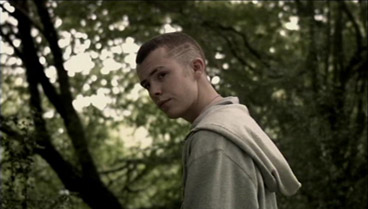
Soon after, Bingo and Jonesy meet up with Paul (Jonathan Jones) and his wheelchair-bound younger brother, Ben (Chris Conway). Camouflaging the chair in bush, Paul carries Ben piggy-back so he can join in with the others. The boys set off down some railway tracks, travelling toward their den in the woodlands nearby. Leanne and Mugsey soon join them, showing off their ill-gotten gains. There's a bit of an alpha male scuffle between Paul and Bingo as they argue over who should get to ride first. Paul, being the bigger of the two, wins out, and takes Ben along as pillion passenger. Scrambling around the woods at speed, Paul loses control of the bike when he accidentally hits Peter (Kevin Howarth, who also worked on Richards' The Last Horror Movie) an ex-military man and drifter. Frightened, Paul grabs his brother and runs back to the others, leaving Peter where he's fallen. When Peter recovers, he comes across the group in their den, and asks to join them. As the day progresses, Peter's mood toward them changes; no longer as friendly as he once was, the gang definitely get more than they bargained for.
Summer Scars is by no means the first film to depict tearaway adolescence, and though here are definite echoes of American teen films such as Rob Reiner's Stand by Me, Larry Clarke's seminal odes to disaffected, troubled youth, Kids and Bully, and perhaps it's closest transatlantic relations, Tim Hunters River's Edge, and Jacob Aaron Estes' Mean Creek, and perhaps even shades of Kinji Fukasaku's Batoru rowaiaru /Battle Royale. But, make no mistake; this is an incredibly British film. It's bleakness is reminiscent of Ken Loach's Kes and Sweet Sixteen, and its gritty, unflinching, discomforting tone of Alan Clark's Scum. Given the popularity of the subject, thanks to its headline-grabbing cachet, it's almost becoming a sub-genre of social realism; the urban drama is undergoing something of a renaissance thanks to Shane Meadows, Saul Dibb and Noel Clarke amongst others. While Richards film taps into – and clearly acknowledges that influence in his music, costume and title design choices – Summer Scars, fits into an emergent niche of films which explore the effects and affects of taking teens out of the urban environment and placing them woodland setting, as explored in Michael J. Bassett's Wilderness, and most recently, James Watkins' Eden Lake.
Though it is pitched somewhat as a teen horror, the genre of the film is actually incredibly hard to define. On the surface, it's a modern coming-of-age tale, with darkly comic and genuinely frightening moments mixed in with militaristic and religious undertones. These changes in tone can sometimes occur in the same scene, so you're never completely certain of anything. At its heart though, this is a morality tale, and an ambiguous one at that. One moment, you'll find yourself wishing the gang will successfully hatch a plot to escape, and the next, you're siding with Peter, because he seems so fragile and broken, genuinely wanting to be part of and regain something he's long since lost: his youth. In a way, his actions almost seem evangelical, as if he's attempting to save the gang from the same kind of fate, but in doing so he inadvertently perpetuates the cycle, leaving them irrevocably damaged. In this way at least, they are broken.
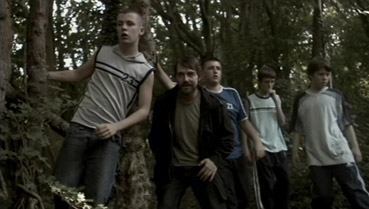
A particularly nice touch in regard to the aesthetic is how Richards has chosen to further reflect these changes within the film's colour palette. As the narrative progesses, the grading shifts from orange through to blue, with the final scenes increased in contrast to make them look ever darker. This trick also mimics the passing of time, particularly important in a film which doesn't have any real kind of temporal marker to suggest how long the group have been in the woods for. Elsewhere, the use of the handheld camera makes it easy to imagine some elements of the film being shot by the kids themselves to boast of their endeavours. The sequences of the gang riding on the stolen moped wouldn't look out of place on youtube. Far from making Summer Scars look cheap or poorly put together, it makes it feel authentic, and really allows for a genuine level of engagement with the characters.
Expensive stock and greeny-yellow-hued glossy aesthetics work very well for some teen horrors – for all their faults, Marcus Nispel and Michael Bay reboots have to be credited for looking nice, if nothing else – but it would be out of place here. Summer Scars wouldn't be half as unsettling or as visually compelling if it were rendered with blue skies and sunny verdant green woodlands, like a British Heritage endorsed picture postcard. One of the film's many strengths its bleak, dreary, atmospheric feel. It's so grounded and ordinary – unmistakably British in that respect – that you can almost smell yesterday's rain, the foliage and the mud. It sounds completely ridiculous to suggest a film set exclusively outside in expansive woodlands, is an incredibly intense and claustrophobic, but it is. The kids are trapped, and though Peter's prison doesn't have any bars, it's no less effective.
So often, horror films in particular play on the inherent fears we have of the dark, ghosts, monsters with extra limbs and extra heads, psychotic loners with a large armoury or an affinity for power tools. But, the scariest people of all are those that look exactly like us, who seem fine, warm, friendly and pleasant one minute, and are blinking maniacally and hurling abuse at you the next. Peter is one of these such people, and he can turn on a dime. The successfulness of Summer Scars, rests – though not entirely – with Kevin Howarth, who, as Peter, is part protector, part counsellor and part tormentor. Howarth runs the emotional gamut several times over and we run it with him. Likewise, the younger cast members turn in particularly powerful yet understated performances. Despite initial appearances to the contrary, this unruly little mob aren't caricatures or a two-dimensional stereotype, instead they're full-bloodied and fleshed out. These kids are someone we do know or have known.
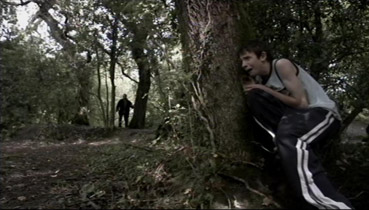
This is the film's masterstroke; it excels it depicting the strange and often surreal twists our lives can take. It wouldn't be fair to entirely describe the events that befall the group here, since part of the film's power is the unexpected. Upon reflection, when Peter first arrives, sitting with the gang after being clipped by Paul and Ben on the moped, it's hard to contemplate what will eventually occur. Though the seed of unease and dread is most certainly planted in regard to his character – the fact he's there at all is odd, never mind the fact he chooses to befriend them – but you're left quite unprepared for just how far and how fast things escalate while that seed germinates, and finally comes into full bloom. Often, the kids are shocked into silence, staring mutely at Peter in stunned disbelief, something which, on the first viewing at least, you'll find yourself echoing.
For a relatively short film, it packs a lot in and rattles along apace without feeling too rushed. Equally, for it's brevity, it feels a very complete narrative, even though it raises a fair amount of questions – and you will find yourself hankering to learn what becomes of the gang – it doesn't tie itself up and become overlong by answering them all. This is a film about a life-changing event, a line in the sand of their lives, separating all that came before and all that will follow, so it's fitting that we're never given anything beyond a glimpse into what tomorrow might bring. For those wanting to peak through that little spyhole, make sure you keep watching to the end of the credit roll.
Although shot on the Panasonic DVCProHD Varicam, the picture quality here is closer to DV-CAM than the crispness of DVCPro, which at its best can rival Sony's standard-setting DigiBeta format. This may well have been an aesthetic decision on Richards' part to give the film a more immediate and home-spun feel (and to more closely match the handheld moped footage, which was indeed shot on a lower resolution format), though this does raise its own questions, as the same look could have been achieved at a fraction of the cost by using £2000 Sony PD-170 or similar DV-CAM machine. Of course if this was not Richards' intention then he himself should have a couple of questions about the transfer. Anyway, assuming this was intended then the look is at least consistent and generally feels right for the film, with a good contrast range and solid black levels, though the highlights are a little burned out, as you might expect from the DV format. Detail is pretty good, but is a little soft at times.
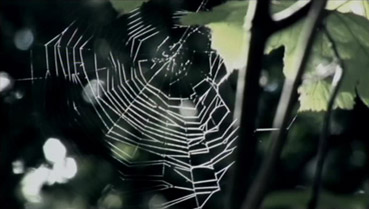
The Dolby 2.0 stereo soundtrack is a clear mix, with nothing flashy in the frontal separation. The music, unsurprisingly, has more punch than the dialogue.
Commentary by Director Julian Richards
Conducted with Richards and producer Sabina Sattar, this is a detailed track which covers a lot of ground, though it suffers from dead spots – where it's clear they're watching events on screen – but it's still well worth a listen for the depth of information they share regarding all stages of the production, from origins of the story, the casting of the actors to the wider process of bringing the film to screen. Again, if you're interested in filmmaking, there's some great technical bits and pieces thrown in here, as well as some amusing little asides that really bring this to life.
Both Richards and Sattar work well together, and their passion for the project is obvious, but most importantly it feels genuine. As with everything else presented in the supplementary features, there's an honesty to their discussion. So often these tracks can descend into "I like..." territory, which is fine to a degree, but with a film like this it's better served by comments with a little more depth, so I was pleased to see (or rather hear), that Richards and Sattar delivered a commentary that actually explored the true process of making the film, which doesn't always happen. It's a welcome compliment to the feature, probably best listened to after viewing the film.
Making-of documentary (29:45)
Shot on location during production, this has a little more substance than your average EPK. The tone is nicely balanced, with a good level of detailed discussion mixed in with more light-hearted moments. Thankfully, it manages not to fall into the trap of overzealous mutual-appreciation, which is often the case with this of supplementary feature. Contributions from Julian Richards, Al Wilson and the cast cover a broad range of topics, with attention paid to the genesis of the project alongside more technical insights on fight scenes and the challenges of shooting darker material with a young cast. Particularly interesting are the comments of Kevin Howarth, as he's the most experienced cast member, and also worked with Richards on his previous feature, The Last Horror Movie.
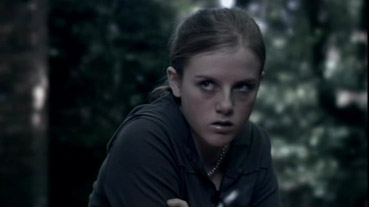
Trailer (2:14)
They've taken a nice approach with this in that it eases you in gently, setting up the bonds between the gang before shifting focus to Peter's arrival, ramping up the tension. Personally, I think this is a much smarter move than a fast cut number with a heavy music track, which would have been concocted to bring more viewers, but been less faithful to the mood of the film as a whole. It's nice to see they didn't take the easy option.
Pirates [short film] (24:36)
This looks like its transferred straight from the 16mm source, and has some age scratches, but it just seems to add to, rather than detract from, the film itself. Made while Richards was still at Bournemouth & Poole College of Art and Design, this is an interesting early short, which has a lot more in common with Summer Scars than first appears. Right from the off, the look and feel of the film set up Richards as a filmmaker who shoots the ordinary, the real and the everyday – a thread which runs through all of his work.
Though he's obviously firmly rooted in the social-realist traditon – by his own admission, he's not a director concerned with fantasy – there's a real sense that he's doing things his own way and doesn't copy others. Already, it's easy to see Richards' work has a distinct authorial voice. I genuinely hope that as Richards continues in his career, more of his shorts will become available, because it's always interesting to see a director's progression over time, most obviously in the shaping of common narrative themes and/or a shift in aesthetic.
Despite it's age, this tale of exploited young wareshouse workers is surprisingly relevant and makes for an intriguing companion to the main feature.
DVD-ROM Content
For anyone with an interest in the nuts and bolts of filmmaking, then this PDF trio is well worth a look. First up is a Press Pack, which is fairly standard stuff, presenting the film's plot synopsis, plus background on the film's production and the cast and crew. Much more interesting though are the Final Shooting Script and the Final Transcript. It's always interesting to see in concrete terms the relationship between page and screen, and Al Wilson's script certainly stands up on its own.
Compared to other micro-budget horrors, the fact the disc boasts a good clutch of extras makes it stand out. Soda Pictures should be commended for creating a solid release package on a tight budget. Other studios should definitely take note.
Summer Scars is a powerful and challenging piece which has the makings of a British cult classic. The headline-echoing premise, festival nods and a wonderfully divided critical response merely add credence to such a label. More a psychological thriller-turned-drama than a horror gore fest, Richards handles the material and his cast with skill. Fans of his last film, The Last Horror Movie won't be disappointed, as Kevin Howarth turns in another strong central performance. This is a modern if bleak spin on the slice-of-life tradition, which proves you don't need a big budget to create a big impact. Recommended.
|